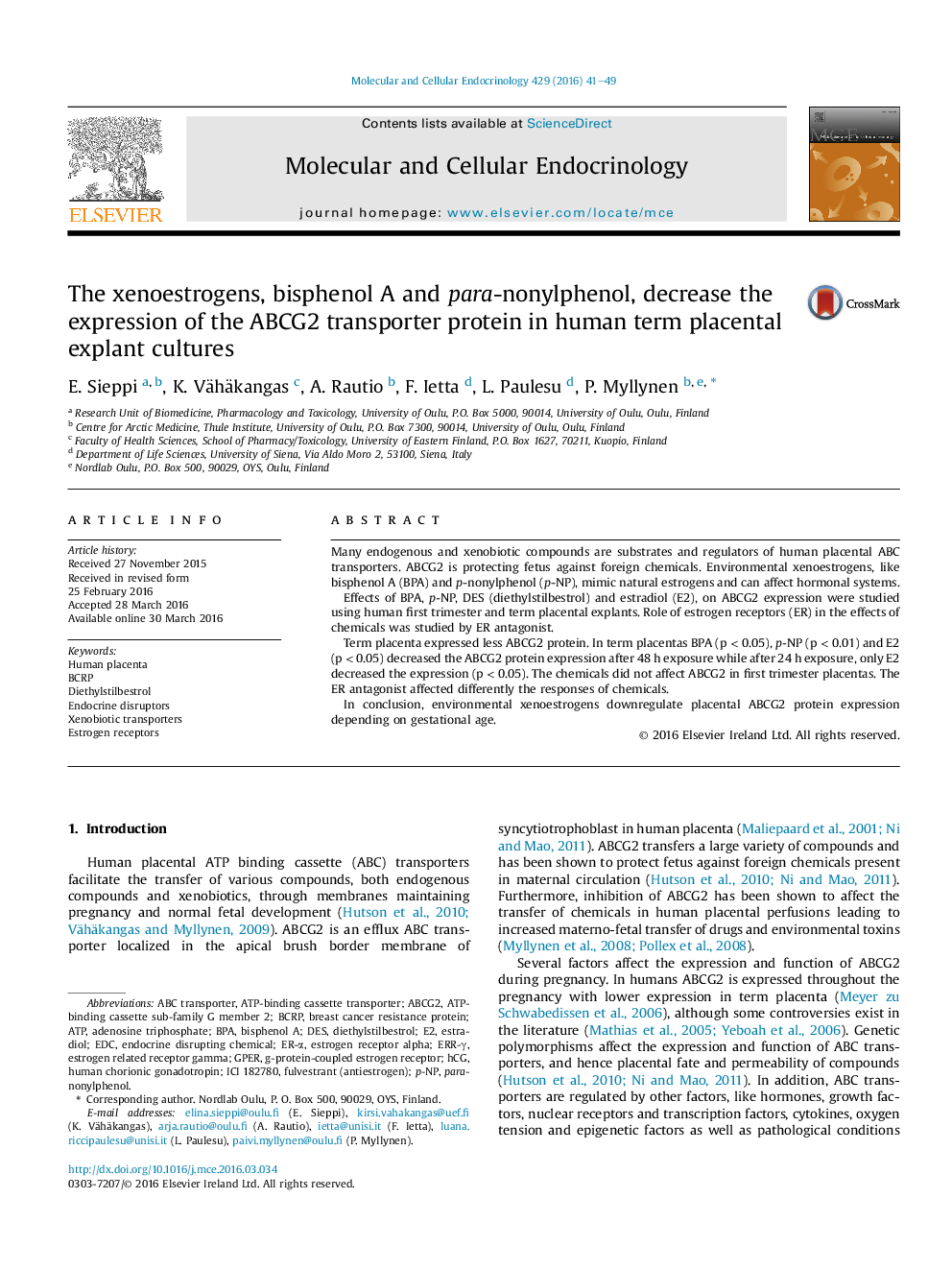| Article ID | Journal | Published Year | Pages | File Type |
|---|---|---|---|---|
| 2195564 | Molecular and Cellular Endocrinology | 2016 | 9 Pages |
•Protein expression of ABCG2 is higher in first trimester than term placenta.•BPA, p-NP and E2 decrease protein expression of ABCG2 in term placenta.•Effects of chemicals on ABCG2 protein expression depend on gestational age.
Many endogenous and xenobiotic compounds are substrates and regulators of human placental ABC transporters. ABCG2 is protecting fetus against foreign chemicals. Environmental xenoestrogens, like bisphenol A (BPA) and p-nonylphenol (p-NP), mimic natural estrogens and can affect hormonal systems.Effects of BPA, p-NP, DES (diethylstilbestrol) and estradiol (E2), on ABCG2 expression were studied using human first trimester and term placental explants. Role of estrogen receptors (ER) in the effects of chemicals was studied by ER antagonist.Term placenta expressed less ABCG2 protein. In term placentas BPA (p < 0.05), p-NP (p < 0.01) and E2 (p < 0.05) decreased the ABCG2 protein expression after 48 h exposure while after 24 h exposure, only E2 decreased the expression (p < 0.05). The chemicals did not affect ABCG2 in first trimester placentas. The ER antagonist affected differently the responses of chemicals.In conclusion, environmental xenoestrogens downregulate placental ABCG2 protein expression depending on gestational age.
